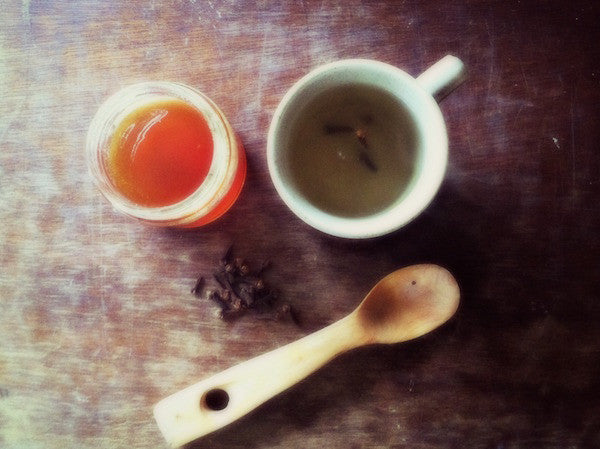
Natural Remedies for Coughs
It’s that time of year again when the trains are packed with people spluttering, sniffling and coughing as the rest of the carriage tries to shuffle away or duck. So if it’s you coughing how can you soothe the symptoms and become less of a social pariah?
As seasonal coughs and flu are largely viral an antibiotic prescription is not normally an appropriate treatment so hold off heading to the GP, most coughs can be treated using natural remedies and over the counter medicines. However if your symptoms persist for several weeks do visit the doctor as not all coughs are winter viruses or it may have turned into a secondary chest infection. We are lucky in the UK that antibiotics are not available for self medication as we are edging dangerously closer to widespread antibiotic resistance with superbugs affecting larger numbers of people every year globally. Lord Jim O’Neil who headed the Review on Anti-microbial Resistance earlier this year said “we need to stop treating antibiotics like sweets”.
There are two kinds of cough, a dry cough and a not very pleasantly called “productive” cough where more mucous and phlegm comes up! For a dry hacking cough, which a recent US study found on average hangs around for a tedious 18 days after a virus, you need to use a demulcent, ingredients that calm irritated mucous membranes which trigger the cough. Studies conducted in 2004 found that the main ingredients in cough syrup (dextromethorphan and diphenhydramine) have the same effectiveness in treating coughs as the placebo ingredient! Even more reason to try natural remedies.
Honey is a rich demulcent as it’s highly viscous and sticky making it ideal for coating and soothing those irritated mucous membranes. A study by Penn State College of medicine found it can calm a cough more effectively than over-the-counter drugs. What’s more, an enzyme added by bees to the nectar when making honey creates naturally occurring hydrogen peroxide, which has anti-bacterial qualities and may speed up your recovery if your cough is due to bacterial illness. The same enzyme also makes honey a great moisturising mask for your face! Honey has been used as an antibacterial and anti-fungal for millennia, dating back to Egyptian times. If you cut your leg out on your bike in the winter cold its healing properties and high viscosity produce a protective barrier to prevent infection.
OUR FAVOURITE NATURAL COUGH REMEDIES
A Hot Toddy Before Bed
I’ve always found that a nice warm cup of hot toddy can relieve any winter cold no matter the strength. A hot toddy contains a measure of whisky, lemon, honey & a few cloves. The honey and lemon get to work on your throat while the whisky helps you sleep, giving you time for your body to replenish and fight the cold whilst you rest. Who needs to waste money in a pharmacy when you have an excuse to grab a bottle of whisky? The whisky also relieves Christmas stress.

Liquorice Root Tea
Liquorice root is another natural demulcent, soothing your airways, as well as being an expectorant, loosening and thinning mucous and easing congestion. It eases inflammation as it contains glycyrrhizin an enzyme which helps to regulate a natural steroid hormone in our bodies, glucocorticoid, thereby reducing inflammation. But if you are already taking steroids speak to your doctor first.
Steep two tablespoons of dried liquorice root in a mug of water for 10 minutes before drinking. Drink twice a day.
Gargle Salt Water
Great for a sore throat as well as for coughs, the salt encourages water to flow out of the cells in your throat reducing swelling and easing discomfort. Coughs can cause inflammation which gargling with salt water helps to ease.
Stir 1 teaspoon of salt into a cup of warm water and gargle for 15 seconds before spitting out. Rinse with plain water after.
Steam
Steam helps to loosen mucous and phlegm and can be used with essential oils with anti-viral and anti-bacterial properties.
Try adding 3 drops of tea tree oil and 2 drops of eucalyptus oil to a bowl of hot steaming water (let it cool for a minute after boiling and take care as steam can burn so test the air with your hand first), lean over the bowl with a towel over your head like a tent and breathe deeply for 5 – 10 minutes.
Thyme Tea
Another remedy with centuries of use, thyme relaxes the muscles of the trachea and bronchi, opens up airways and has anti-microbial properties helping to reduce coughing.
Infuse a cup of hot water with a handful of fresh thyme sprigs or 2 tablespoons of dried thyme. You can add a spoon of honey for extra benefit. Drink 2 or 3 times a day as needed.
Pepper & Honey Tea
You may have noticed that black pepper can make your nose run! If you have a chesty cough drinking a mug of hot water with a teaspoon of freshly ground pepper and a tablespoon of honey can help to loosen mucous.
